CAREER EXPLORATION
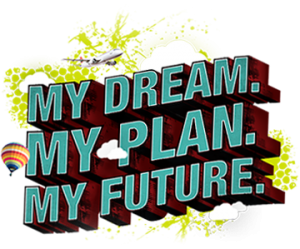 SDMyLife is an online program assisting students with navigating the career development process. To find a good match, students take interest assessments. They can explore by career cluster, keyword, or school subject. Students can also research postsecondary and ability assessments, education and training options, build a portfolio, study for the ACT with Method Test Prep, and find out about scholarship opportunities.
SDMyLife is an online program assisting students with navigating the career development process. To find a good match, students take interest assessments. They can explore by career cluster, keyword, or school subject. Students can also research postsecondary and ability assessments, education and training options, build a portfolio, study for the ACT with Method Test Prep, and find out about scholarship opportunities.
SERVICE & LEADERSHIP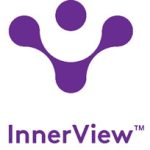
Community service sets students apart from others in college and career application processes. InnerView is the leading youth platform to help students highlight community service impact, their passion for causes, and connections of their local effort to Global Goals. It packages student’s high school service activity in a way to inspire and inform through Individual Student Service Resumes and eligibility for National Community Service Awards. Rapid City Area Schools encourage high school students to use this platform for ease in tracking their service hours and activities.
COLLEGE CREDIT
Advanced Placement Program
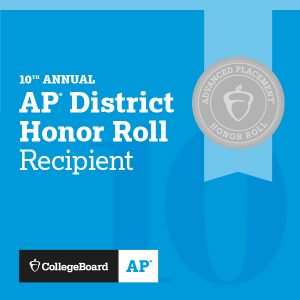 The Advanced Placement Program (AP) is a voluntary program that gives students a chance to experiences college-level classes in high school and opens the door to earning college credit before ever setting foot on a college campus. While digging deeper into subjects they love, students will build the skills and confidence they need to succeed in college.
The Advanced Placement Program (AP) is a voluntary program that gives students a chance to experiences college-level classes in high school and opens the door to earning college credit before ever setting foot on a college campus. While digging deeper into subjects they love, students will build the skills and confidence they need to succeed in college.
Grades are weighted for AP courses as follows:
A – 5.00 B – 4.00 C – 3.00 D – 1.00
College Level Examination Program
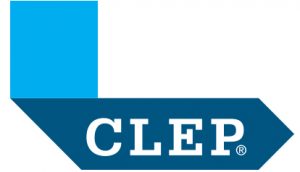 The College Level Examination Program (CLEP) assesses college-level knowledge in thirty-six subject areas and provides a mechanism for earning college credits without taking college courses.
The College Level Examination Program (CLEP) assesses college-level knowledge in thirty-six subject areas and provides a mechanism for earning college credits without taking college courses.
Course Equivalency Exam (Test-Out) Program
Rapid City Area School District Policy allows any RCAS student in grades 9-12 to challenge courses specifically identified by the Board of Education. Students are allowed to test out of an receive up to eight credits toward high school graduation when earning a minimum score of 85% for each exam taken. To learn more about the RCAS Test Out Program, click here.
Dual Enrollment
Earning college credit in high school means paying for fewer credits in college. Dual enrollment opportunities also open up your college schedule, allowing you to take more electives, pursue a second major, or study abroad.
The South Dakota Legislature has appropriated funding for the creation of the South Dakota High School Dual Credit program. Through this program, participating public universities and technical institutions provide eligible high school students with dual credit course(s) that are governed by the postsecondary institution’s policies. This program makes course work available to students at a reduced tuition rate set each year. Students are responsible for the cost of the course credits and any required course materials and textbooks.
For the dual enrollment application process for South Dakota Universities and Technical Colleges, visit sdmylife.com/prepping-for-college/dual-credit.
Dual Enrollment at Western Dakota Tech
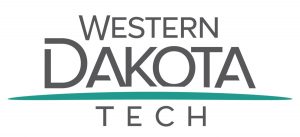 Any student enrolled in an RCAS high school and is at least a junior in good academic standing can enroll in Dual Enrollment. Dual Enrollment allows high school students to enroll in courses at Western Dakota Tech (WDT) and earn high school and WDT credit. All courses and books are free for RCAS students if students meeting enrollment deadlines. In addition, WDT offers courses that can be transferred to any South Dakota public university.
Any student enrolled in an RCAS high school and is at least a junior in good academic standing can enroll in Dual Enrollment. Dual Enrollment allows high school students to enroll in courses at Western Dakota Tech (WDT) and earn high school and WDT credit. All courses and books are free for RCAS students if students meeting enrollment deadlines. In addition, WDT offers courses that can be transferred to any South Dakota public university.
To learn more about the courses offered at WDT for Dual Enrollment, click here.
COLLEGE ADMISSIONS
The ACT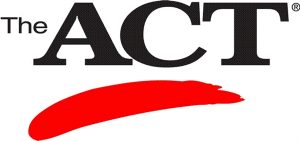
The PreACT simulates the ACT testing experience within a shorter test window on all four ACT test subjects.
The ACT (originally an abbreviation of American College Testing) college readiness assessment is a standardized test for high school achievement and college admissions in the United States which includes five sections: writing, science, math, reading, and English. Most colleges will accept a student’s ACT scores as part of the admissions evaluation.
College Board Assessments
The PSAT is an assessment developed by The College Board to determine college readiness for students in grades 9-11. Students are assessed in the areas of critical reading, mathematics, and written expression in preparation for the SAT1: Reasoning Test. Students who take the PSAT/NMSQT and obtain a qualifying score will be invited to apply for the National Merit Scholarship program.
National Merit Scholarship program.
The SAT is a standardized test developed by The College Board that measures verbal, mathematical reasoning and writing skills. Four-year colleges use a student’s score on this test as part of the admissions evaluation for acceptance.

ACCUPLACER is an integrated system of computer-adaptive assessments designed by The College Board to evaluate students’ skills in reading, writing, and mathematics. The results of the assessment, in conjunction with your academic background, goals, and interests are used by academic advisors to determine your course selection.
| Grade | Recommended Exam(s) |
| 8-9th | PSAT 8/9 |
| 10th | PreACT
AP Exam(s) to earn college credit |
| 11th | ACT and/or SAT
PSAT/NMSQT for students hoping to qualify for the National Merit Scholarship AP Exam(s) to earn college credit ACCUPLACER when applicable for Dual Enrollment Placement |
| 12th | ACT and/or SAT
AP Exam(s) to earn college credit ACCUPLACER when applicable for Dual Enrollment Placement |
Preparing for testing? Click here for Test Prep Resources
CAREER TESTING
National Career Readiness Certificate
 The ACT National Career Readiness Certificate (NCRC) is a portable, evidence-based credential that certifies the essential skills for workplace success. Employers look for it from job candidates, whether they come directly from high school, work-based learning programs, or through postsecondary pathways, because it is a valid predictor of job performance.
The ACT National Career Readiness Certificate (NCRC) is a portable, evidence-based credential that certifies the essential skills for workplace success. Employers look for it from job candidates, whether they come directly from high school, work-based learning programs, or through postsecondary pathways, because it is a valid predictor of job performance.
Armed Services Vocational Aptitude Battery
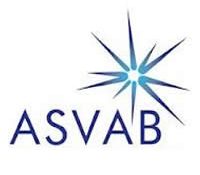 The Armed Services Vocational Aptitude Battery (ASVAB) is a timed multi-aptitude test that measures developed abilities and helps predict future academic and occupational success in the military.
The Armed Services Vocational Aptitude Battery (ASVAB) is a timed multi-aptitude test that measures developed abilities and helps predict future academic and occupational success in the military.
To learn more about military-focused scholarships, click here.
Return to College and Career Planning